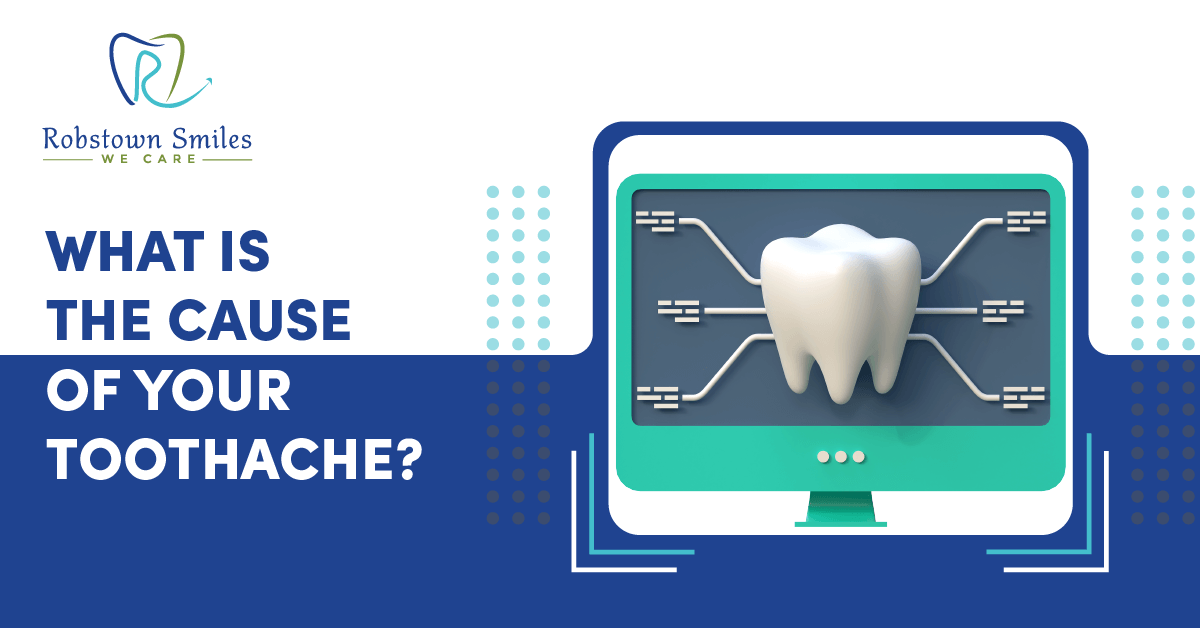Toothaches can manifest in a variety of ways, including inflamed and irritated gums, an unpleasant taste in the mouth, headache, fever, ache in gums, and acute, pulsing, or continuous mouth pain. Many people are surprised by a sudden, severe toothache that leaves their eyes watering and their gums throbbing.
There are actually many reasons for toothache
Here are the top causes of toothache
Cavity
A tooth cavity is the most frequent reason for toothaches. The main cause of cavities is typically inadequate dental hygiene and the accumulation of bacteria leaving a tiny hole in your tooth, which has the potential to enlarge and deepen with time. Untreated cavities can damage the tooth, which could result in tooth loss or even worse spread of infection to surrounding tissues like jaw bone and adjacent teeth.
Abscess in Tooth
An infection that has spread to the tooth’s “pulp chamber,” also known as the root tip or the area around the root, is referred to as an abscessed tooth. This may lead to:
- A Diseased Root.
- Swelling in Gums.
- Excruciating Pain.
- Potential Bone Loss at The Infection Location.
If you notice any of these signs mentioned below, you should schedule an immediate appointment with your dentist since you may have an abscessed tooth:
- A swollen gum
- Gums that are red or have darkened
- Pain when putting pressure on the troubled tooth
- Despite using painkillers, the throbbing pain does not go away.
Gum Illness
Gum Disease also known as periodontal disease is more common in people over 35. The most typical form of gum disease is gingivitis, while periodontitis, which is more severe, affects 5%–15% of people.
Plaque buildup as a result of bad dental hygiene is the main cause of gum disease. The infection due to plaque eventually causes gums to swell and bleed. Many gingivitis patients have no pain, but if the condition is not addressed, tooth loss may occur.
Trauma or Injury
An accident that results in a shattered tooth or tooth that is knocked out is one of the more evident causes of toothaches. Make an appointment with your dentist immediately to have the trauma taken care of if this happens.
Don’t forget to check: How Ultrasonic Scaling Benefits Patients and Dental Hygienists?
Wisdom teeth
Significant discomfort may result if wisdom teeth are not extracted when they are ready to come out. You’ll feel a sore and potentially swollen area (which is an indication of pericoronitis) at the back of your mouth around your molars if your wisdom teeth are about to erupt.
This discomfort won’t go away when your wisdom teeth develop, especially if they develop sideways or in an unnatural position. If this occurs, they may press against nearby teeth, bones, and nerves and cause pain. If you still have your wisdom teeth and are having pain in the upper back and bottom molar region, it’s likely time to have them extracted.
Conclusion
While there may be a number of explanations for your persistent toothache, the good news is that many of the above-mentioned factors are totally avoidable. Any toothache can be treated by maintaining good cleanliness, abstaining from bad behaviors like teeth grinding, and visiting your dentist frequently.
To assist you get relief quickly, Robstown Smiles provides complete dental care services and same-day appointments. Contact us right now to make an appointment at 361-933-0124.

